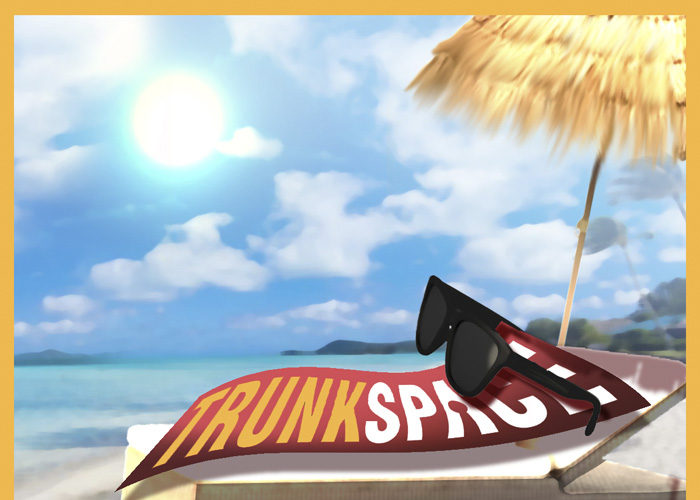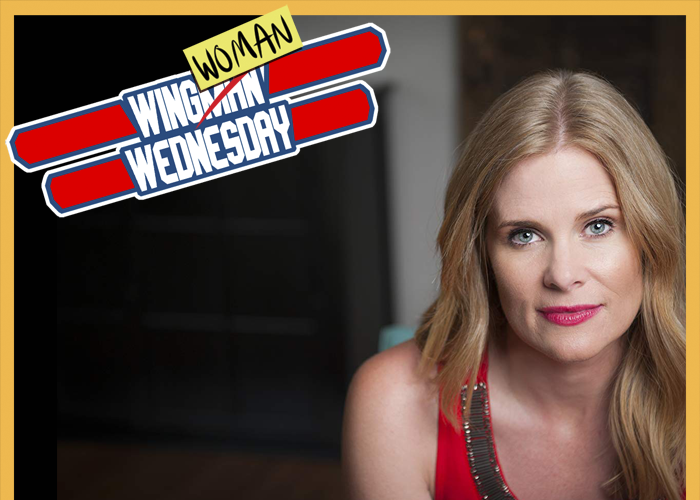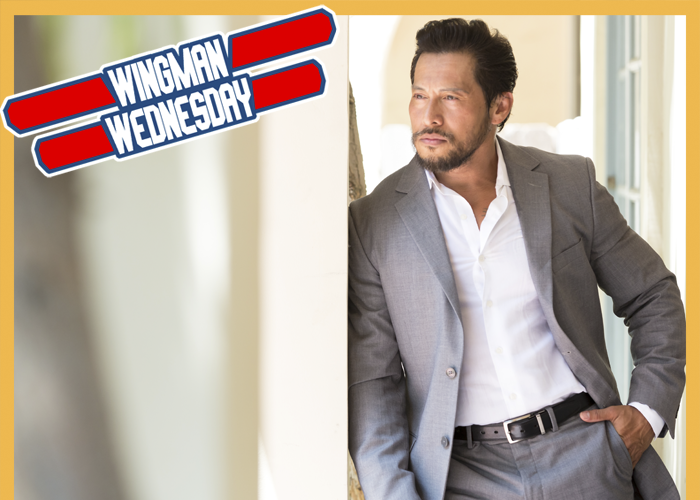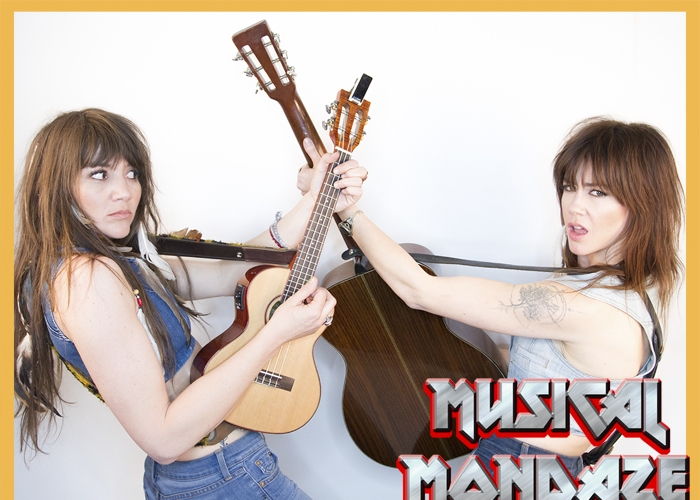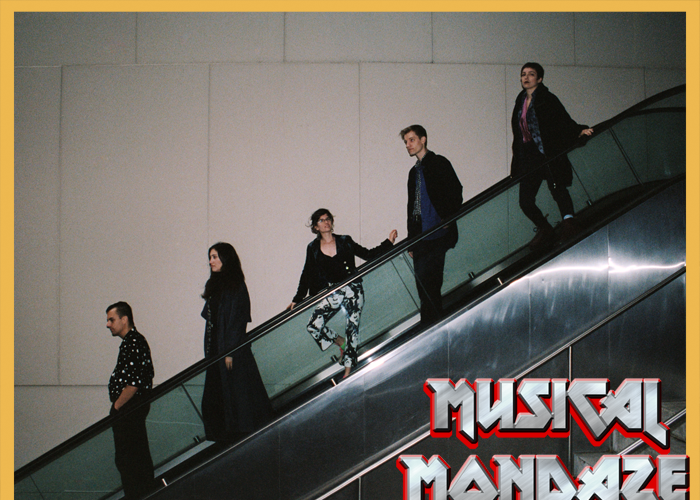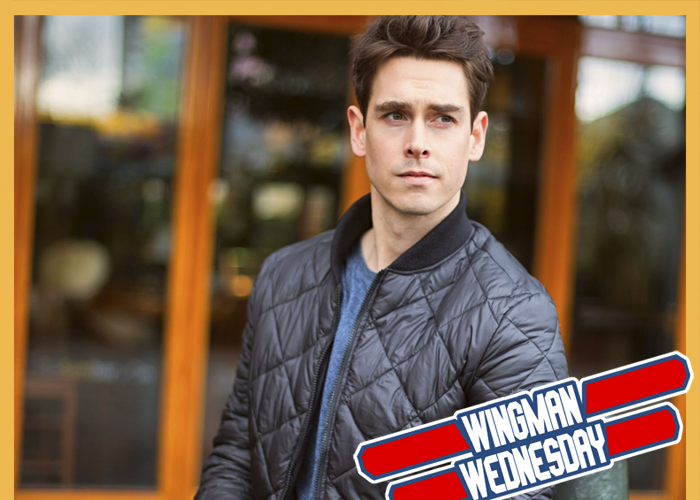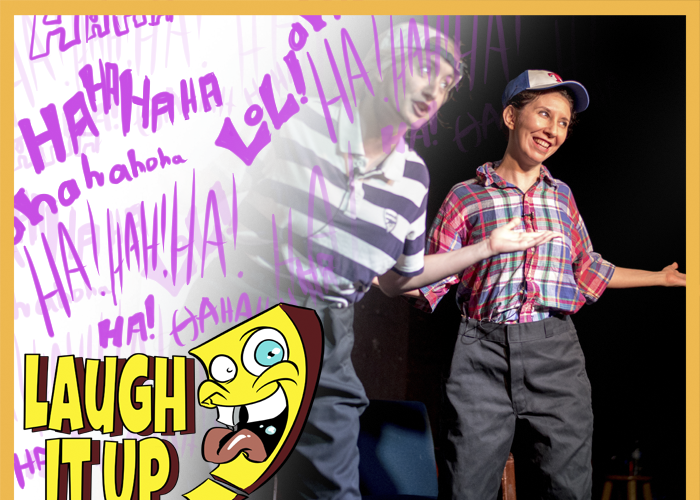With summer winding down, the TrunkSpace’rs are getting in some much needed rest and relaxation! We’ll be back mid-week next week with a regular, ongoing, back to business slate of features for everyone to enjoy! May all of your toes find some sand to rest in!
August 2018

Although she didn’t pursue a professional acting career until she entered her third decade of life, Audrey Walters never felt like she missed out on any opportunities. In fact, focusing on family and her own personal growth throughout her 20s put her in a position to fully inhabit her characters and understand exactly who they are.
Her most recent project, the western “Big Kill,” costars Lou Diamond Phillips, Jason Patric, and Danny Trejo, opens in theaters on October 19.
We recently sat down with Walters to discuss the legacy of the western as a genre, why her character breaks the madame mold, and what it was like to have George R. R. Martin show up on set.
TrunkSpace: Your new movie “Big Kill is a western. From a performer’s standpoint, in terms of inhabiting an imaginary world, there’s got to be nothing better than a western, just because it’s so “classic Hollywood”? Between wardrobe and the set, it must be easy to escape into that?
Walters: Oh, absolutely. That film was a blast. And you said it all – the wardrobe that I got to wear was phenomenal. I just couldn’t wait to go to set each day and see what was hanging in my trailer.
TrunkSpace: And as far as genres go, it’s been around since the start of the medium. It holds a special place in the world of pop culture.
Walters: Yeah, that’s right, and especially because the place we were filming is a historic film set, right outside of Santa Fe, New Mexico. So it was kind of cool to look around and know that the amount of films that have been made there. There was definitely something sort of sacred about it.
TrunkSpace: The cast of the film is great, too. If this came out 20 years ago, it would have received a big theatrical release. Now there’s so much quality content circulating everywhere with great casts.
Walters: Absolutely. Yeah, the people that we worked with, we had so much fun. It’s always different to be on location when you’re making a film anyway, because it’s kind of like being at summer camp – only it was freezing. I have to say that. It was freezing. (Laughter)
TrunkSpace: It’s not supposed to be freezing in a western. Well, at night is okay.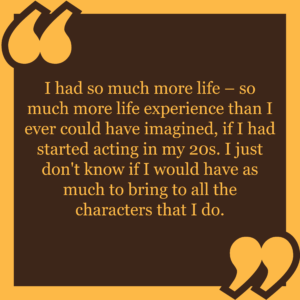
Walters: (Laughter) Yeah, exactly. But you know, whenever you’re filming, you’re just in this whole different world. You’ve been through this huge experience together, like I said, that’s why I can relate it to summer camp. And then when you say good-bye to everybody and everyone goes back to their lives, you’re kind of like, “Aww…”
TrunkSpace: It’s a bit like you’re living in a bubble for that period of time.
Walters: Exactly. And we were all staying in the same hotel, so on our days off, it was like, “Okay, what are you guys doing? What’s going on? What can we do around here?” It was a lot, a lot of fun. I’m really grateful that I had the experience, for sure.
TrunkSpace: What did you enjoy most about inhabiting your character, The Madam?
Walters: I loved how strong this madame was. You hear madame in the whorehouse and you think, “Okay, I can pretty much know what that’s going to be like.” But the character I played, she ran things. She ran things around there. And she definitely had some power, and it came through in a lot of the scenes that we had.
TrunkSpace: What for you was the most memorable moment for you throughout the shoot, something that you’ll carry with you through the rest of your career?
Walters: Oh, it was so many. I would say the collaboration involved in this project. Everyone had each other’s back. There were no huge egos on the set, even though there could have been. There really could have been! All the stars who we were working with were kind and generous and super down to Earth. And the leadership. You know, the leadership on the set always sets the tone for every single person there, and I just felt like they were all really amazing role models.
TrunkSpace: And that must be really beneficial when you’re on location.
Walters: It was. It definitely was. And you just create these friendships, too. It was just a really special moment. Another neat thing is George R. R. Martin came to visit our set one day. We had a lot of fans on set. He was there just hanging out. He wanted to see how things were going. That was a pretty memorable moment too.
TrunkSpace: And then of course, after that, every character in the movie has to die off, because you know, his presence.
Walters: (Laughter) But of course. I think it was a day where we had a shoot out.
TrunkSpace: There you go! He’s like the grim reaper for fictional characters. (Laughter) Is it exciting to be working today, acting, when there is just so much great content available to not only viewers, but to the performers working in them?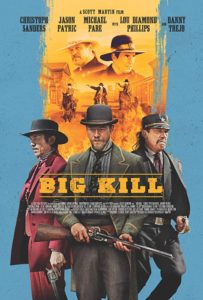
Walters: Oh, absolutely. There is so much content out there, and so much high quality content. So, there are a lot more opportunities than there have ever been. And in particular, for me personally, being someone who’s kind of a middle-aged woman, you would think that there isn’t that much for me, but there really is. There’s a lot out there. I love that a lot of the content that’s being created too has a lot of mature characters.
TrunkSpace: And as you get older, those characters must get more intesting.
Walters: Oh, absolutely. I didn’t start acting until I was in my 30s. I had so much more life – so much more life experience than I ever could have imagined, if I had started acting in my 20s. I just don’t know if I would have as much to bring to all the characters that I do.
TrunkSpace: And as we all get older, we get more confident in ourselves and our abilities. When you’re in your 20s, it would probably be easier to take the rejection side of the business personally.
Walters: Yeah, no kidding. Having a life, having other things going on in my world, I just don’t take it personally anymore. If I end up not getting something, I’m like, “Okay. Oh well. All right. I got other things to do.” I worked with a lot of kids, who are kid actors, and I’ve coached a lot of kids along the way in the years, and that’s one of the biggest parts that I try to explain to them and advise them on is just, “Try your best not to take these things personal.” Because you just never know. And there’s also just a lot of faith that has to go into having this career path for yourself. I mean, like you said, there’s so much content out there, and I just kind of have to have some faith that the right project will come my way.
“Big Kill” arrives in theaters on October 19.
“Arizona” opens August 24.

There is a life lesson, one rooted in expectations, hidden deep beneath the surface of the career trajectory of Ricky He, currently starring in the musical remake of “Freaky Friday” for Disney Channel and the latest season of “Trial & Error” on NBC. He never planned on pursuing acting as a professional pathway, but instead, realized it was a passion that was missing from his life after beginning college.
Even with his career-changing role in “Freaky Friday,” it was never destined that he would portray one of the leads. He had originally auditioned for a much smaller, more comedic part, but the casting directors saw something in his read that spoke to the character of Adam, the charismatic crush of costar Cozi Zuehlsdorff’s Ellie Blake.
Basically, life never goes exactly as we intend it to, but like He’s zig-zagging career, sometimes the results are even better than we could have ever expected.
We recently sat down with He to discuss awkward in-between times, why campiness is great escapism, and how putting his best foot forward lead to his biggest job to date.
TrunkSpace: With everything that is popping for you this summer, it must be a really exciting time?
He: Yeah, it’s pretty crazy. This is the first year that I have multiple projects essentially coming out back to back. Super exciting stuff.
TrunkSpace: Is there a different kind of excitement involved with a project when it’s being released, as opposed to when you’re shooting it? Does it have a different feeling?
He: I would definitely say so because there’s the excitement of landing the job, and then working on it, and kind of seeing it all pan out. No one really talks about that awkward in-between time of the movie being done, and then several months later the movie coming out, and so the anticipation in the last couple months has been pretty unreal.
TrunkSpace: Because “Freaky Friday” and “Trial & Error” are two such high profile projects, does it feel like this could be a game changing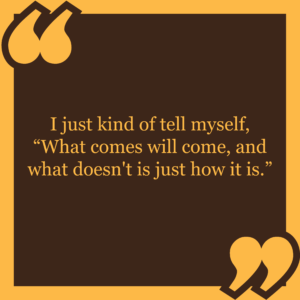 period of your career as well? It’s almost like you’re waiting on the future at the same time, right?
period of your career as well? It’s almost like you’re waiting on the future at the same time, right?
He: You’re completely right. The part of the anticipation is waiting to see what kind of changes will happen. And I’ve been trying really hard, and I’ve been working a lot on… especially, in the last couple months… just really connecting with myself, and also with close friends and family members, just so I know that regardless of what happens, whether or not the movie is a hit or is a success, that I’m, at the end of the day, just still me fully. I’m still just a grounded, regular human being. I’m a brother and a son before I was an actor or a Disney star, or anything like that.
TrunkSpace: Well, and when you look at the track record that Disney has, they have certainly had a hand in creating stars.
He: Right. Kind of like a personal mantra is I try to keep the expectations nice and low because if I set the bar too high, then I’ll get disappointed. I just kind of tell myself, “What comes will come, and what doesn’t is just how it is.”
TrunkSpace: We read that you almost walked away from acting. Not because you didn’t feel like you had the talent, but because you felt it might be a steep hill to climb in terms of being cast. Is that true?
He: There is so much that goes into it. I went to high school, kind of like a performance arts school. We had a really good music program, we had a really great drama program, and we had a really good visual arts program. I kind of got into the school doing the drama program, but it was never… everyone says, “Oh, I wanted to be an actor ever since I was a kid.” I really had no idea. I didn’t think anything of it. It was just a drama program that I did in high school. And come time for senior year, I kind of figured out, “You know what, I’ve got to be realistic. I’m not gonna be an actor. I should probably drop the drama program and just do what I need to do to get into school.” And that’s basically what I did.
And that detachment from it was unnoticeable at the end of high school. It was like, “Oh, yeah, I’m just not doing an elective in high school.” But it wasn’t until I finished high school, which is this huge transition – graduating out of high school and not seeing your same friends every single day, and learning how to time manage, and actually make time to spend time with friends. Just adulthood stuff – grown man stuff that you would think would come hand in hand, but it really doesn’t. It’s stuff you have to learn. That’s when I started to learn about myself that I really miss it (acting). I just felt like I was missing something, and that I needed to fulfill that to satisfy my own curiosity. I went back into some acting classes, and the rest is history.
TrunkSpace: But at the time when you were in college, you were studying psychology, right?
He: Correct. I was. Yeah.
TrunkSpace: That has to be one of those great “other” paths that actors can actually apply to acting.
He: Right, and you know what’s funny is, everyone kind of assumes that. But to be fair, I was doing Psych 101 and 102. (Laughter) It was a lot of, “Who was the founder of psychology?” Stuff like that. Part of me was kind of curious about it. I’m like, “Yeah, psychology that translates right over to acting…” But I don’t know if knowing that Wilhelm Wundt discovered psychology will really help me with my acting.
TrunkSpace: Unless you’re playing Wundt some day!
He: (Laughter) Exactly. Now I’m set.
TrunkSpace: With a project like “Freaky Friday,” is it exciting knowing that because it’s an established property and brand, that you’re going to have an audience who watches regardless?
He: Yeah, there is definitely that aspect to it. But on the flip side there are also the nerves surrounding it. Now having seen the movie, and having had it screened, and knowing how well it actually is received, and how much kids and their parents even like the movie, I can say with confidence that the nerves definitely have settled. But prior to that, there was definitely nerves around the fact that it is a preexisting franchise that is so precious to so many people. People love this story, and people love these movies, and there is almost the pressure to keep true to its original form, but also not stepping on any toes. Because people love it so much, it’s easy for people to feel defensive over the previous films, but having seen how well it’s been received is very comforting because I truly believe… and it’s the same with human nature… if you give it a chance, and you watch the movie, you’ll find so many things that you love about it. Just like people, we have more in common than we don’t.
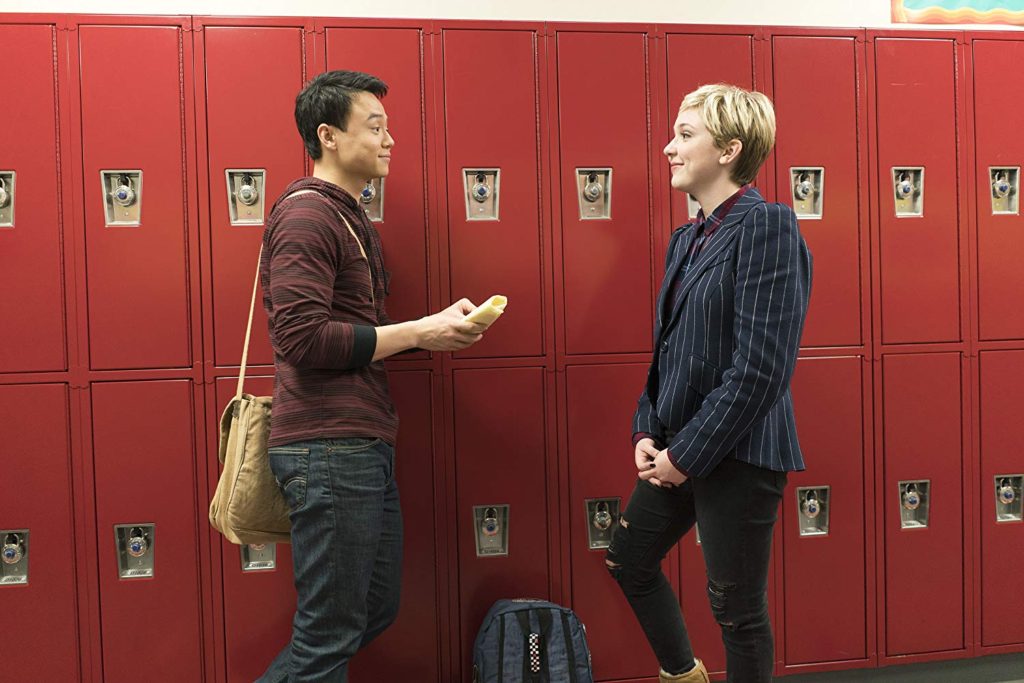
TrunkSpace: And it truly is a family movie, something that parents and kids can both watch and enjoy on a different level.
He: Yeah. For me growing up as a kid, one of my favorite movies of all-time is “Toy Story 2” and the “Toy Story” movies in general. Those are a great example, case in point, of movies that are made for kids that family members can all enjoy. And I think that’s really where we kind of really nailed it with “Freaky Friday” is that, yes, it’s a kid’s movie, but beyond that it’s also a family movie. There are real emotional moments. There is real storytelling involved. And yeah, some of it is on the campier side, but you have to remember that it’s a kid’s movie, and it’s fun, and there is levity, and it’s funny. All the good mushy stuff that people like.
TrunkSpace: When campiness is done right, as an adult, it’s great escapism.
He: Oh, big time. I mean, think about the old Adam West “Batman” series. Talk about campy, but enjoyable, right?
TrunkSpace: When you first auditioned for “Freaky Friday” it was for a smaller role. Eventually you landed the part of Adam, one of the leads. Does that kind of sum up the industry as a whole, that you can never really expect where the path will lead?
He: Yeah, definitely. This is I think something that really helped me with my acting career too. Specifically, about two years ago, I just had to change my mentality on things. Because truthfully, I’ve been really lucky that I found some really great opportunities, and in the grand scheme of things I’ve put in the hours and I’ve been working really hard, but I haven’t been doing it as long as some my peers. And I think one of the huge differences was that I realized that in all sense of the word it’s a collaborative effort. People go into an audition, and they feel like, “Oh, no. They’re out to get me. They’re judging me, or they don’t want me to succeed.” But that’s not what it is. I think of it is we’re working together between me and the casting director, and the producer, and the director if they’re in the room. It’s a collaborative effort. And sure, if I don’t book this thing, it doesn’t matter because I’m just trying to make a good impression for a future endeavor. And that’s kind of the mentality I had with “Freaky Friday” because I walked in, and I knew the character description well of the original role that I was going out for, and I’m like, “Honestly, I can play the dorky stuff, but I’m not gonna be as good as somebody else.” Look at Isaiah Lehtinen, my costar that actually plays Karl. He’s so perfect for it. And I knew that I wasn’t gonna get it, but I was gonna put my best foot forward, and just see where this would take me in the future. It just turned out to be a more immediate future.
Check listings for “Freaky Friday” air times or watch it On Demand.
“Trial & Error” airs Thursdays on NBC.
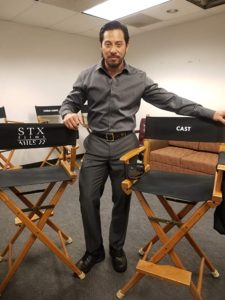
As sinister as he can be on film, which is on display in his latest project “Mile 22” opposite Mark Wahlberg, Sam Medina is nothing like his on-screen persona in the reality that we all call home. Affable and eager to discuss the filmmaking process, the Vietnam-born actor is reveling in his current run of projects, which also includes the upcoming “Venom,” “Alita: Battle Angel,” and his directorial debut, “Code Name The Dragon.”
We recently sat down with Medina to discuss the pinch of strangers, why his journey to Hollywood was part of a matrix-like design, and the reason his character’s hands only get dirty when they need to in “Mile 22,” which opens in theaters on August 17.
TrunkSpace: You have a whole lot cooking between now and the end of the year. It must be a crazy, exiting time for you?
Medina: It is an amazingly exciting, crazy, chaotic time, and I love every single minute of it because you can’t just have the good. You also have to have the bad, whatever that might come with it. You have to accept it all. The schedule is crazy. Work is crazy. The road is crazy. But I mean, you live for this. I live for this. I dreamed of this before, so believe me, brother, I’m probably going to talk to strangers today and ask them to pinch me. (Laughter)
TrunkSpace: You spent the first 12 years of your life in Vietnam before coming to the States. When did the dream start? What was it that sparked performing and everything else you’re currently working on?
Medina: Well, I was a musician. I was a producer for a lot of rap artists and R&B singers down south. I was always conducting, producing, and kind of directing rappers on how and what kind of songs we should do with the beats that we were making. But the passion for filmmaking and becoming an actor happened after Katrina. It was by design. I can’t really tell you it was a choice at first. It was by design – like if we were living in the matrix, because after Katrina there were no jobs in New Orleans, Louisiana. I was just one of those guys outside of Home Depot and Lowe’s, doing construction work. I was getting sick, and I was just speaking into the universe that I needed to do something else before I died from smelling all of the mold. That was 12 years ago.
The number 12 kind of is lucky for me, I guess, because I moved here when I was 12 and it’s been 12 years ago since I started this film career.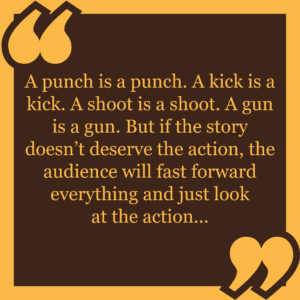 And now we’re having a conversation about it. So I think the number 12 might be a lucky number for me.
And now we’re having a conversation about it. So I think the number 12 might be a lucky number for me.
TrunkSpace: Someone might see your work in “Mile 22” and say, “Sam Medina is an overnight success,” but like you said, you’ve been at this 12 years now.
Medina: Yes, and I also studied many, many great ones that came before me. Most of the “overnight” to people, it’s usually a 20-year career span, so I still have another eight years to really make a mark. (Laughter)
TrunkSpace: “Mile 22” is an action film, which are always a fun ride for viewers, but in terms of production, they’re the most technical to shoot, correct?
Medina: Yes, it’s the hardest. The action has to be shot with a preface, which is a set of videos by the team – the stunt coordinator, fight choreographer – they put this stuff together. They hire stunt performers. They do the action. They shoot clips of it. They send it to the director. The directors and studios approve it before we even get to set to shoot. If they don’t, we change it. So technically action, for the audience to continually be engaged, is the hardest thing to do. You can see a scene that lasts 30 seconds on screen, but it probably took over two weeks to film and maybe two weeks to prep.
TrunkSpace: In the trailer your character Axel, the big bad of the film, comes and goes in a very ominous way. We don’t get to see him get into any of that nitty gritty action fighting in the trailer, but is it safe to assume that we will see some of that?
Medina: You will see some of it, but with Peter Berg, the director, the way that he wanted to design the film, it was slightly different. I’m the head honcho, so my hands only get dirty when they need to get dirty. (Laughter)
TrunkSpace: The film has a thriller element too, which in this day and age, audiences really seem to expect that multi-layered entertainment. There aren’t a lot of films that are just one thing anymore.
Medina: Right. There’s so many underlying tones, and so many layers to the film. That way you keep the audience engaged. Once you watch it, you will go back through it you and will say to yourself, “Oh, okay now I understand why they did it with that, why they did this, why this was this and why that was that in the story.” Yes, audiences are smarter now and in order for you to keep the audience engaged, you have to service the audience. They deserve more.
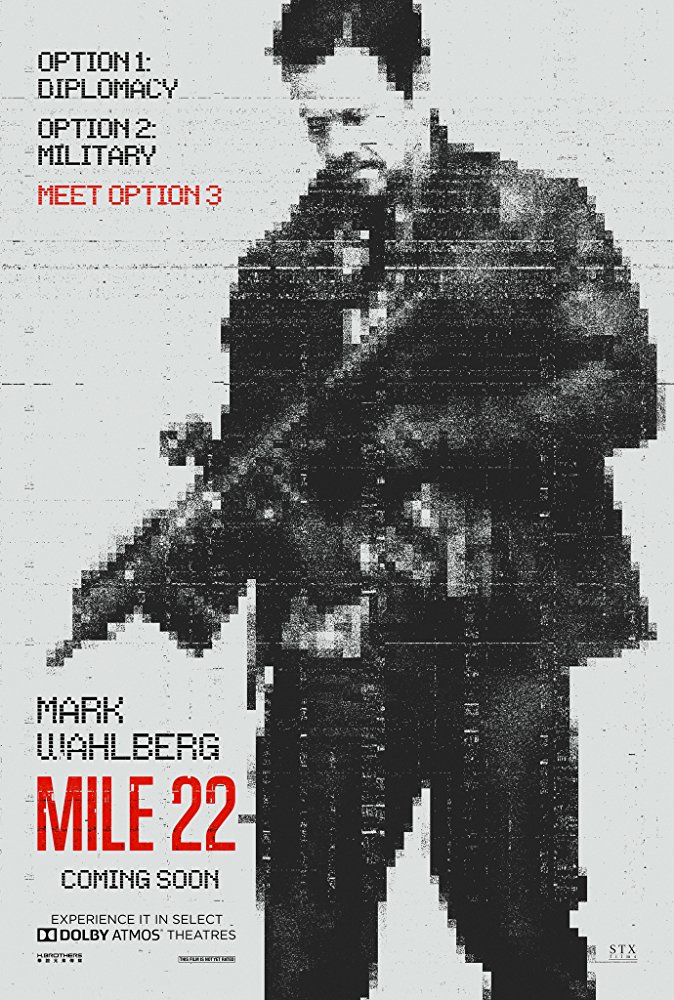 TrunkSpace: With so much really great television nowadays as well, audiences seem to be looking for more character-driven material that plays out in a longer way. And we know you have your directorial debut coming up later this year, so we’re curious if that is something that you think about from both sides of the camera now?
TrunkSpace: With so much really great television nowadays as well, audiences seem to be looking for more character-driven material that plays out in a longer way. And we know you have your directorial debut coming up later this year, so we’re curious if that is something that you think about from both sides of the camera now?
Medina: Of course. I’ve been blessed in my life. I’ve been lucky and blessed. I work extremely hard, but once again, I have to say that it’s the way how it was designed. It was destined. My resume includes so many legendary directors and I watch every single one because that helps me with my first feature that I’m debuting this year. I’ve taken everything I’ve learned from them to make it my own style.
You do have to serve the audience in a story. A punch is a punch. A kick is a kick. A shoot is a shoot. A gun is a gun. But if the story doesn’t deserve the action, the audience will fast forward everything and just look at the action, whether it’s a shoot-em up or a fight movie. So for me as an actor, if I’m looking at a part – or as a director – I want to look at the story first. You have to have a story to earn the right to the action, to earn the right to a shootout. Then the audience will understand. “Now I understand why this is happening!” So yes, storytelling is really key.
TrunkSpace: Well, and there’s an element too of being invested in the character so when there is that shootout, there are real stakes for the viewer as well. You don’t want to see your favorite character hit by a bullet.
Medina: Of course. You are 1,000 percent correct, my friend. Everything is about the story, because just like you say, if the audience is not vested into your characters that you lay out at the beginning of the movie, then they don’t care. They won’t go on that journey that you’re trying to take them on as an actor, as a filmmaker, or whatever it is you’re trying to do. They won’t go on that ride with you, so you have to create characters where they want to take that ride with you, and they sit in the theater for two hours to watch.
TrunkSpace: In terms of your performance as Axel in “Mile 22,” so often we hear actors say that in order to play a big bad or just a bad guy in general, you don’t view them as bad. It’s that you have to try to find their particular motivation for the actions that they’re taking. Is that how you approached Axel?
Medina: Of course, because I believe, and I’m sure you do and many other people also do as well, the villain wasn’t always the villain at one point. At some point, something or someone happened, and then he had a change of heart. But he has a purpose to it. He has a point of view to it. Just like the hero has his or her point of view, the villain also has his or her point of view as well. And because they have different point of views, when you put them in the room together, you want to see who is going to win. There it goes back to your statement, the stakes are high as hell, because now they’re trying to impose their point of view on each other, and so you have a great story.
You have to have a great villain, but I also wanted to play the villain to where you actually believe why I do what I do, just like you believe the hero has the right to do what he does too, in this case it’s Mark Wahlberg and his whole team.
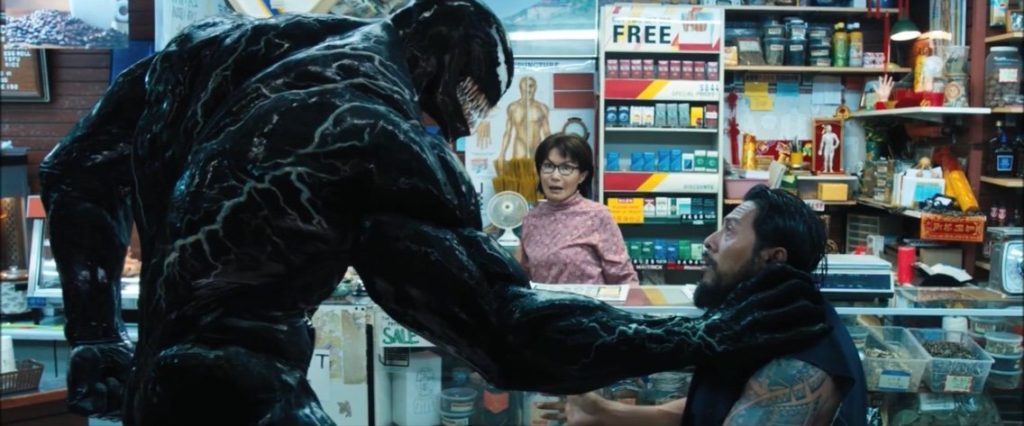
TrunkSpace: You recently appeared in a great segment of the latest “Venom” trailer. As an actor, you can probably never anticipate what will happen day to day, even down to the point of whether your performance will wind up in a particular scene or trailer. Do you find yourself getting emotionally invested in everything that you do, or do you have to keep each job at arm’s length to, in a way, sort of protect yourself?
Medina: Well it’s hard, because I think that it’s in individual cases, but for me my heart is always in it. I was in the first “Ant Man” and when me and the Colonel in the Hispanic army got edited out of the film, I was devastated. That was my first Marvel movie. For me, I’m invested in every project that I do. I can’t step away from it, because I love every aspect of the filmmaking process, from the beginning to the end and during. I do invest a lot. I do go up and down with myself, because sometimes you don’t make edits in a movie. Sometimes you make the trailer, sometimes you don’t. But for me, if I don’t care, then why would I do it?
Yes, it can be a letdown, but it can also be a letup. As actors, as filmmakers, we live on the creed of hope. We hope for the next job. We hope that the film we make is well received by the audience, so I have to live by the creed of hope. For me, I definitely get invested, and I definitely get my heart broken many times. But if you think about it, we audition for a thousand roles before we book one.
“Mile 22” opens today.
“Venom” opens October 5.
“Alita: Battle Angel” opens December 21.
 Are your ears jonesing for a sound that they haven’t necessarily heard before? Something that is part Smothers Brothers-throwback and part country-modern? Well, if your answer is “Mmhmm,” then Raelyn Nelson and Hannah Fairlight may have just the thing for you.
Are your ears jonesing for a sound that they haven’t necessarily heard before? Something that is part Smothers Brothers-throwback and part country-modern? Well, if your answer is “Mmhmm,” then Raelyn Nelson and Hannah Fairlight may have just the thing for you.
Already established on the Nashville music scene by way of their individual musical endeavors, the duo came together to form mmhmm after their personal friendship slowly developed into a creative partnership. Following the release of their self-titled debut in June, mmhmm received criticism for what many deemed the perpetuation of a word associated with hate speech, featured in the song “Lookin’ Like a Tranny Blues.” Both Nelson and Fairlight address the issue here with TrunkSpace, ensuring their fans that it was never their intention to offend anyone. (Read more below.)
We recently sat down with the pair to discuss future holiday happenings, penis-shaped clouds, and why they sometimes second-guess themselves creatively now.
TrunkSpace: We have to say, after listening to your debut, we’d stand in line for a Christmas album by the two of you.
Fairlight: Oh my gosh.
Nelson: I’m writing it on the to-do list.
Fairlight: She’s writing it on the to-do list! It’s happening and you’ll be surprised because we have many a hairbrained idea, but we’ve not thought of that yet and that’s an amazing idea. We’re going to have to give you credit.
TrunkSpace: We’ll be awaiting the festive snap, crackle and pop of the holiday vinyl.
Nelson: By popular demand!
TrunkSpace: Your debut album was released back in June. Looking back, now that you have distance with it, is there anything that you guys would have done differently?
Nelson: I think we probably would have not put “Lookin’ Like a Tranny Blues” on the album.
Fairlight: I agree.
Nelson: We didn’t realize that the word is a taboo word now and that it is linked with hate crimes and hate speech. I know it is used on sites like shemale hd but we now understand that’s ok because the circumstances are different. We definitely don’t condone any sort of hate speech.
Fairlight: We love everybody and we did not intend for the song to be interpreted that way.
Nelson: I gotta say, it was a hard thing to go through with our community, in Nashville, that seemed to turn against us very quickly. The wound is still healing. I think we’re trying to stay far away from that song still.
Fairlight: We had a long process in making the debut and I would say that, every approach to every song was from a storytelling standpoint.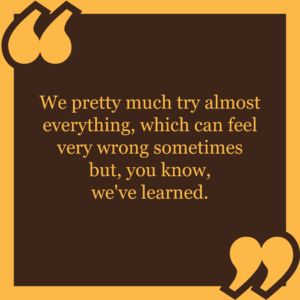 We’re out, we’re active, but I guess we didn’t really get any queues from anybody along the way that the song wouldn’t be…
We’re out, we’re active, but I guess we didn’t really get any queues from anybody along the way that the song wouldn’t be…
Nelson: So, we had our CD release party planned at Lipstick Lounge, which is a lesbian bar here in town and we’ve played there many times. We played the song there many times and no one said anything to us that it was considered hate speech. It was a place of ignorance, and to answer your question, we probably wouldn’t have put that song on there had we known it was that…
Fairlight: That racy and that bad, yeah. We just didn’t really even think of it that way at all during the process of making it. Other than that though, we love the way it (the album) turned out. Brad Jones, over at Alex The Great, did a really good job capturing mmhmm with minimal instrumentation and maximum us – comedy and who we are and what we want to put ourselves forward as.
TrunkSpace: There is a great live energy and vibe to the album. Is that something you set out to achieve?
Fairlight: Absolutely.
Nelson: Yeah, you know, everything kind of happened organically with Hannah and I. We were just writing some songs together and then a gig fell in our lap. Funny you mentioned Christmas because it was a Toys for Tots Christmas gig that was offered to us and we had maybe three songs written, so we learned a couple covers and then put the show together.
Fairlight: It started to take shape. The show became the best vessel for mmhmm and when it came time to record… actually, right near the end, we actually talked to Brad about adding the banter that we do our show with, to make it feel like that.
Nelson: We haven’t even talked about putting the bits in there with the next one. Who knows if we will or not, but it was definitely important for the debut one.
TrunkSpace: With the negative feedback you received for “Lookin’ Like a Tranny Blues,” did that make you then second-guess yourselves when writing new material? Are you more aware about what you’re creatively putting out into the world now?
Fairlight: Yes.
Nelson: Yes, I question everything a little bit… racy isn’t the word. What’s the word?
Fairlight: I’ll tell you this, I was on the way here writing a song in my head about falling in love with a gardener and being like the mistress of the house, just ’cause I had passed somebody doing the lawn care and was inspired and had this idea. Coming down the driveway to meet Raelyn here, it feels like… it did enter my head, and it wouldn’t have entered my head before this whole thing, that well, I don’t want us to be branded as an affair-promoting band. You know what I mean? Just weird stuff has been floating into our heads.
Right after that happened, there was a penis cloud in the sky and it took us like 10 minutes to try and caption it because we couldn’t figure out what was appropriate for the penis cloud.
Nelson: And that’s hilarious. Everybody’s going to laugh at a cloud shaped like a dick, c’mon!
TrunkSpace: Society seems so divided and it feels like music should be one of the safe spaces where you can go to a show, stand amongst people you may have nothing in common with, and still all enjoy yourselves collectively.
Nelson: Exactly.
Fairlight: Yeah, I really felt like we had that, sort of, comradery there at Lipstick and also just in our community in Nashville. I think we still have that. I feel like it’s our responsibility now to be the dorky headhunters or whatever, at this new understanding of certain words and moving forward be light-hearted and make fun of ourselves and get back to having fun. We just want to have fun. We want people to have fun.
 Nelson: That was hard to get back to fun.
Nelson: That was hard to get back to fun.
Fairlight: We were guilty for putting anything fun up, like the dick cloud.
Nelson: We were just in this grieving mode and it was affecting our families and it was a tough time. On the other side of it, we’ve learned a lot and it bonded us closer, ’cause we felt like it was us against everyone.
Fairlight: It has definitely been something that we didn’t anticipate and for many reasons, I feel like it’s helped us grow as artists and friends and people, so it’s good. Bring it on!
TrunkSpace: You talk about your bond now and just in reading about your story of how you two came together, it felt very much like the “Step Brothers” movie. “Did we just become best friends?”
Nelson: (Laughter) That’s funny.
TrunkSpace: Was there just like an instantaneous connection on a creative level?
Fairlight: I think we both watched each other perform and we started to get a sense of who we both were, but our friendship came first. I think that it was really neat because, I don’t know, probably like a year and a half or so, two years, into our friendship, it seemed like the obvious thing to write songs together, but we just didn’t do it. Then one summer Raelyn had the extreme misfortune of having her house burn down.
Nelson: So, when they were rebuilding my house I was relocated to a house that was about a mile from Hannah.
Fairlight: We were right there and we were at each other’s houses a lot and we started playing shows with a small of group of local female artists and doing these shows together. Off the back of that, Raelyn and I just started writing together, mainly on our porches and just…
Nelson: About things that were happening around us.
Fairlight: It was crazy. We called it the Bad Decision Summer, ’cause we were drinking a lot in response to how crazy it was. (Laughter) Just a lot of crazy stuff was happening and so these songs just kind of came to us. And the sound. And everything. We followed our feet and everything about mmhmm has been like that. We just have an idea and we’re like, “Yeah, let’s try it,” or, “No, absolutely fucking, no.”
Actually there’s no, no in mmhmm.
Nelson: We try it first and then…
Fairlight: We pretty much try almost everything, which can feel very wrong sometimes but, you know, we’ve learned.
The self-titled mmhmm debut is available now!
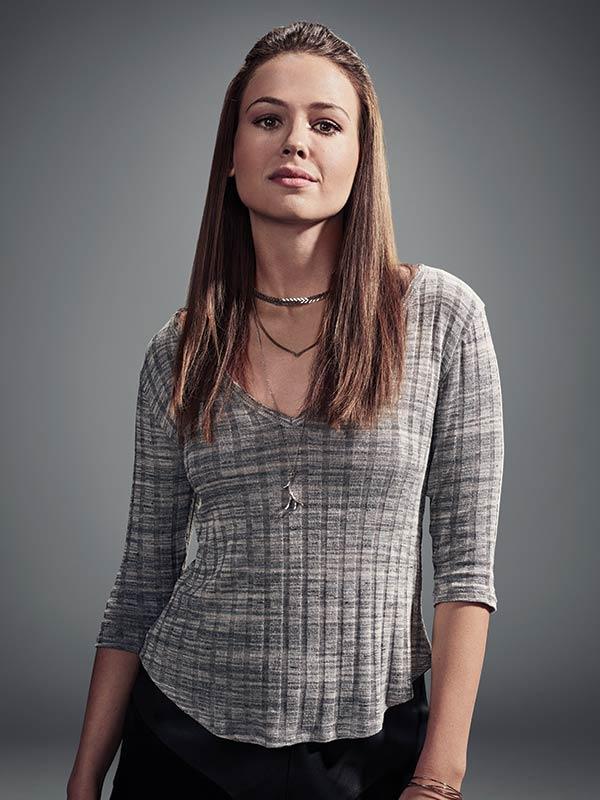 With the talent to sear a celluloid pop culture pathway into your brain and a classic, ageless beauty reminiscent of Kate Beckinsale, Jocelyn Hudon is our favorite actress on the rise. With roles in AT&T Audience Network’s “Ice” and the upcoming Netflix series “The Order,” the Canadian born thespian is on her way to being a force to be reckoned with inside Hollywood.
With the talent to sear a celluloid pop culture pathway into your brain and a classic, ageless beauty reminiscent of Kate Beckinsale, Jocelyn Hudon is our favorite actress on the rise. With roles in AT&T Audience Network’s “Ice” and the upcoming Netflix series “The Order,” the Canadian born thespian is on her way to being a force to be reckoned with inside Hollywood.
We recently sat down with Hudon to discuss the current television content climate, the reason she’d be acting no matter what generation she was working in, and why pretending to be someone else can be extremely cathartic.
TrunkSpace: We were doing a little research on your Instagram and we saw that you were in South Africa recently?
Hudon: Yeah, that was amazing.
TrunkSpace: Was that a perk of a particular job?
Hudon: Yeah, it was. It was the best. I don’t know how I can beat that but I’m going to try.
TrunkSpace: Not too shabby for a place on location!
Hudon: South Africa was amazing. Surfing and nature and hikes. It was awesome.
TrunkSpace: Do you have to be extra careful surfing over there? Isn’t that where a lot of the great white sharks are?
Hudon: Yeah, there are, but they have shark spotters. On the highway there’s a bunch of little huts and they’ll have drones flying over. I had to get out of the water once because there were two great whites, but it was fun.
TrunkSpace: Well, let’s transition into something a little less terrifying! You appeared earlier this year on the second season of “Ice,” which airs on the AT&T Audience Network. You also recently shot “The Order” for Netflix. As an actress, is it an exciting time right now to be working, not only due to the quality of the content, but because of the quantity as well?
Hudon: Yeah. There’s a lot of good stuff out right now. Every other audition I get I’m like, “This is the one!” Then two hours later I get another audition and I’m like, “This is the one!”
TrunkSpace: Does it make things less competitive than it once was because there are more jobs available?
Hudon: I think so. I still have to work my ass off. Sometimes you go 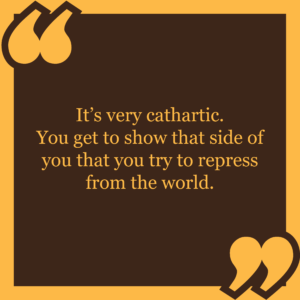 to an audition – this happened to me twice this year – but I go to an audition and I see someone I watch on TV and we’re going for the same role and I’m like, “Oh my god, I love you.”
to an audition – this happened to me twice this year – but I go to an audition and I see someone I watch on TV and we’re going for the same role and I’m like, “Oh my god, I love you.”
TrunkSpace: Do you think you’d enjoy acting in the 1980s and 1990s, particularly in television, when the shows being produced weren’t as sophisticated or character-driven?
Hudon: Yeah. I just love performing no matter what it is. I think maybe it would have been easier because there was less people. I feel like social media and stuff, everyone is in the spotlight now so I feel like there’s a lot more people going for a lot more jobs, so I guess networks can be a little bit more specific as to what they choose now acting-wise.
I would have fun no matter what. I love it. I don’t think I could do anything else.
TrunkSpace: You mentioned social media. That seems to be a component that is involved in acting careers now as well. We have heard stories about people not getting jobs because someone else had a larger social media following than they had, whether that be because they’re already well-established, or have used growth services like nitreo.com to help them on their way, which seems like it adds a whole new stress to the process.
Hudon: I hope that’s not true. I had a girlfriend say the same thing last night, that she didn’t get a job because she was going against this Disney star who had millions of followers. I really hope that’s not the case. I hope whatever projects I go for don’t do that. I’d rather get the job because of my talent than what I take pictures of, you know?
TrunkSpace: Absolutely. Social media should be a tool in the toolbox, not the toolbox itself.
Hudon: Yeah. I don’t know. I’m not huge on social media. I just have this thing that… I was on a train once going from Montreal to Toronto and I ran into this girl. She went and sat behind me and we were both going from Montreal to Toronto – we both worked that day. I’m like, “I wonder what she was working on.” I expected her to post on her Instagram so I go on her Instagram and she posted a picture from an airplane, of the wing of the airplane, being like, “Going back to Toronto!” I was like, “I can see you! You’re on a train.”
TrunkSpace: Has acting opened up your life in a way that you couldn’t have anticipated when you started to dream about it as a career?
Hudon: Yeah. I got to go to South Africa, which was amazing, and the first movie I shot was in Paris, which was awesome. I remember driving and my agent was like, “Can you pull over to the side of the road?” On the phone, I’m like, “Yeah.” He’s like, “You’re going to Paris tomorrow to film a movie.” I was like, “Oh.”
Travel is amazing. Meeting people is amazing. Getting put in crazy scenarios with method actors and you’re just like, okay, go learn how to adapt and become a more well-rounded human being. For acting, I feel like it’s made me more sensitive because I wasn’t the most sensitive person growing up. I’m the oldest child so I’m tough and hard. It’s made me become more vulnerable and sensitive and empathetic when you’re in scenes where you have to listen and care. It really pushed me that way.
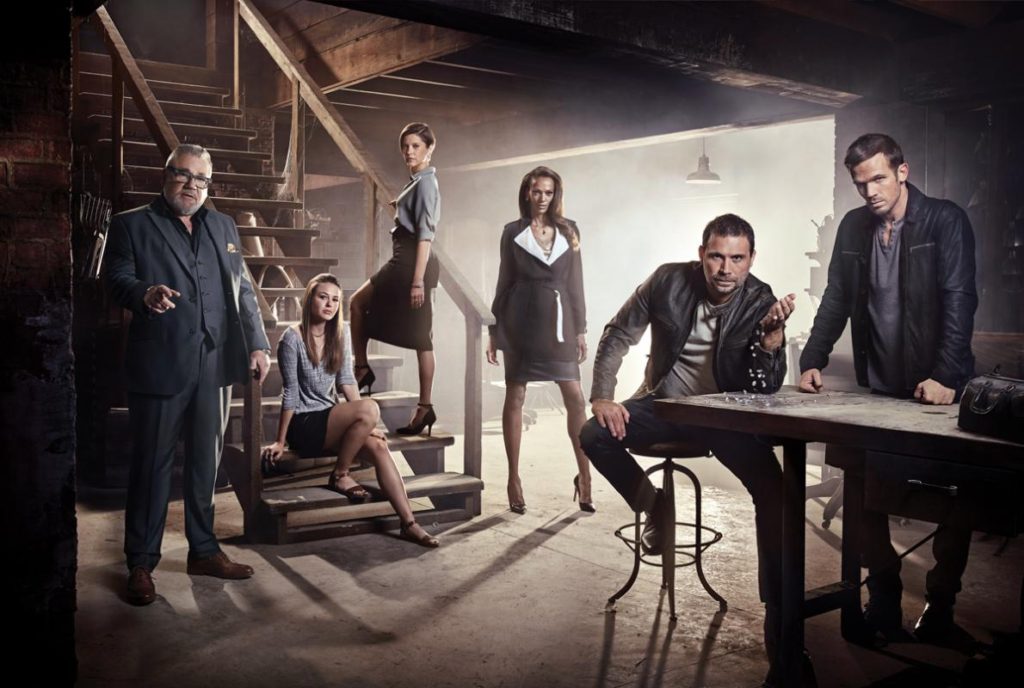
TrunkSpace: So in the process of discovering who a character is and what they’re all about, you end up learning more about yourself as well?
Hudon: Yeah. It’s also, you can show parts of yourself that… in real life I try not to be angry or I try to be as calm and as nice as possible, but then there’s some roles where you get to scream and yell and be crazy. It’s very cathartic. You get to show that side of you that you try to repress from the world.
TrunkSpace: It also has to be one of the only jobs that changes daily, which must be a nice perk as well.
Hudon: Yep. I need change all the time. My worst nightmare is working, getting to work at 9:00, leaving at 5:00 – just being trapped in an office. I did it for an internship for my post-grad degree. I had to work in an office and this woman would come yell at me all day and I wasn’t allowed to leave and I wasn’t allowed to do anything and I just had to sit at this computer and work for this giant corporation. I was like, “Fuck no!”
I really value freedom. I think you’re alive once and if you’re not doing exactly what you want to do with the time you have on the earth, then you’re just wasting your time.
TrunkSpace: If you were to sit down with the young girl – the younger version of yourself who first dreamed of becoming an actress – do you think she would be surprised by how your path has gone thus far?
Hudon: Yep. I was thinking about that today. I always wanted to be an actress but I didn’t vocalize it. My parents are very academic so it was like, “Go to university. Do a master’s. Become a lawyer.” The whole time I was like, “I think there’s something else. This doesn’t really feel right.” The fact that I’m Canadian and I live in LA – I have my apartment in LA, I have a manager and an agent and have been on TV – that sometimes blows my mind. If I didn’t stick up for myself or claim what I really wanted to do and become, I could have easily not. I could have just let this pass by. I’m really glad I had the balls to come out and say what I wanted to do and actually pursue it, so I think I would be really shocked.
Season 2 of “Ice” is now available on AT&T Audience Network.
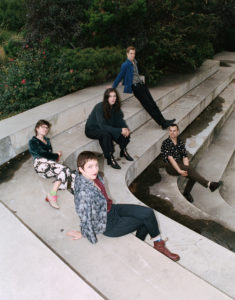
With their debut album “Endless Scroll” (out now on What’s Your Rupture), the Brooklyn-based art rock group Bodega isn’t peeling back the layers of music to see what’s beneath, but instead, adding layers so that there is substance at every level of its creation.
We recently sat down with guitarist/vocalist Ben Hozie and vocalist Nikki Belfiglio to discuss the experience they were trying to establish when creating the album, the reason they also view themselves as critics, and why the greatest function a band may perform is having no function at all.
TrunkSpace: Did the band set out to accomplish something on a macro level with the album?
Hozie: Yeah, “Endless Scroll,” it’s not necessarily a concept record in the way maybe you’re talking about, but we did wanna make a… the Bodega mantra is the best critique is self critique, so we went into it looking specifically at me and Nikki’s day-to-day existence, and I guess this was 2016, and flipping this, the critical lands on ourselves. Obviously, Web 2.0, social media, the Internet and just screens in general… we’re both filmmakers, and people say, “How is,” for example, “‘I Am Not A Cinephile’ related to staring at a computer?” To me, they’re the same thing. It’s a life lived through the screen, which isn’t even necessarily a good or a bad thing. It’s just how people live their lives. It’s how we live our lives right now.
TrunkSpace: We get that. The music itself is not always the hook anymore. It could be the visual. It could be the packaging. Not many people, at least in the younger generations, are just sitting around experiencing JUST the music.
Belfiglio: That’s why with the album we created a lyrical zine to go with it – the vinyl – with the intention to put on your headphones or put on the record and read along to the lyrics to get a full immersion into the album.
Hozie: Away from a computer screen.
TrunkSpace: So what the band set out to do was create something beyond just the music itself? You were creating an experience?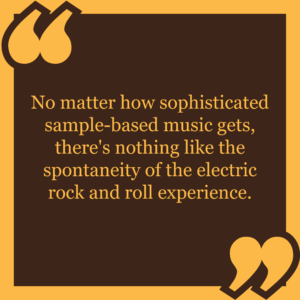
Hozie: Yeah, to me, that’s why rock and roll is still a valid art form, or a vital art form, because an electric live rock and roll moment can’t be duplicated. There’s so many different elements that go into it, whether it’s the five players of the group, or the room, or the people there, or the idiosyncrasies of the moment. No matter how sophisticated sample-based music gets, there’s nothing like the spontaneity of the electric rock and roll experience.
TrunkSpace: And seeing a live show, especially now when we seem so divided as a society, it’s one of the last communities. You go and you can all have a sort of common focus.
Hozie: Yeah, or not. I often wonder, no two people experience the same event in the same way at all. That’s pretty apparent when you read reviews of records or books or whatever. It’s like, “Are they hearing the same thing I’m hearing?” And they’re not. That’s why a good friend of mine says, “You should never feel bad about criticism from someone who’s dull.” That says more about them than it does about you.
TrunkSpace: Well, an in the social media age, everyone is a critic.
Hozie: I feel the way people most listen to music is, they’re 20 seconds in and they’ve already decided whether they like it or not, just on whether the vibe of it is what their brain wants to hear. Or, whether the color of the record sleeve is… is the palette pleasing to them? So, in 20 seconds they’ve already made up their mind. In fact, they’ve probably already made up their mind before they clicked on it.
Belfiglio: ‘Cause of the name.
Hozie: Yeah. I think you could only really enjoy music if you go into it wanting to like it. You have to have that openness, and even the way I listen to music, I don’t want to do this, but I find my brain doing it – I’m making critical judgments before a song is even over. That’s just the way the world works now, which is for better or worse.
TrunkSpace: So as artists, is that daunting to you both as musicians but also as filmmakers knowing that the way people are absorbing things is different than it once was?
Hozie: I think we’re trying to adapt with the times, and part of what I see Bodega doing is functioning as a critical apparatus as well. I mean, all inherent art making is sort of critical in the sense that by choosing to play a certain type of music, you’re critiquing, inherently, the other kinds of music that you’re not playing. I see a lot of our best songs as little pocket essays. They’re not critical in the sense of thumbs up or thumbs down, but they’re critical in the sense of… I relate to, for example – this is a film analogy – but the French new wave guys all started out as critics before they were making films. I feel like there’s an element of that in our band.
TrunkSpace: In creating art you kind of have to be a critic in a way, because if you can’t judge your own work and fall in love with it in some way, the end user can always sense that.
Hozie: Yeah.
Belfiglio: You recognize it’s real.
Hozie: Yeah, that’s absolutely right.
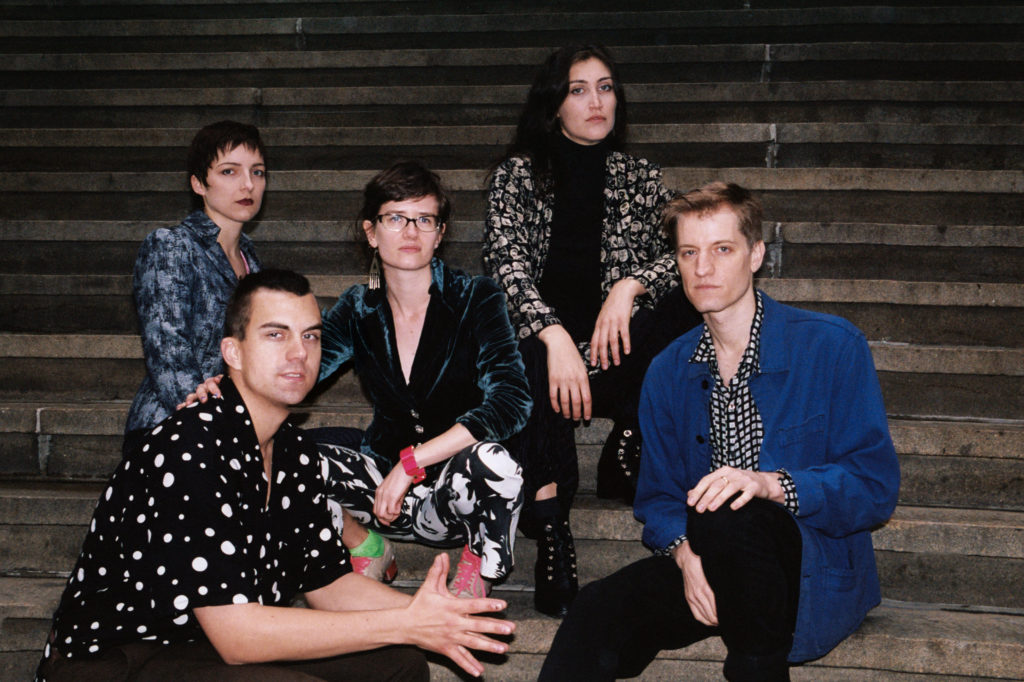
TrunkSpace: So when you look at the messaging within the songs, were you looking to say something that people could not only enjoy in the moment, but also walk away from – leave the show, put down the album – and kind of think or find a different point of view within (or because of) something that you were saying?
Hozie: Absolutely. I think the goal of any artist’s work is to simply… well, I said this before, but I think the first goal that you need to do is you need to tell the truth. The secondary goal is to sort of de-program. I say it a lot in Bodega. What we’re trying to do is point out the sort of hidden things that are holding up the pillars of not only rock music, but just the inherent cultural underpinnings. Like for example, in our track “Can’t Knock the Hustle,” it might be kind of obvious, but the cultural logic behind late capitalism is expressed in almost all pop music – the idea that you can’t knock the hustle. So that song is kind of meant to poke at that, and it kind of becomes a dumb arena sports anthem. But obviously the message is that you can knock hustle. It’s more complicated than that because it’s referring to the Jay-Z song. I think Jay-Z’s message of not being able to knock the cocaine hustle when you come from an underprivileged background, and you’re slinging coke in Brooklyn or whatever… you can knock his hustle. That’s his point. The song playfully extends his logic outside of the context where his logic doesn’t make sense anymore, which is the ice cream parlor. I heard one of the bosses there in that ice cream parlor… so it was all African Americans, mostly Jamaican guys, who worked in this ice cream shop, and it was all white people from the Hamptons who were the managers. These guys, who are listening to Jay-Z would kind of say, “Well, you know, our bosses are clearly racist in some way, and they’re exploiting us, but you can’t knock the hustle ’cause they’re just doing what they can to feed their families and get bigger houses out in the Hamptons.” And you wanna be like, “No, you can knock the hustle!” (Laughter)
TrunkSpace: It seems like nowadays, in the climate that we’re in, people are scared to knock the hustle. They’re worried what’s going to come back on them.
Hozie: Right. I’ve been thinking about this a lot. One of the great premises of DIY culture is based on functionality. I’m thinking about, like, Fugazi’s “Waiting Room.” Function. Function is the key. Or the promise of the Minutemen. We jam econo, and we’re going to hop in the minivan, drive to the next town with the most limited means possible, and we’re gonna increase our functionality as much as possible. Sort of like a Utopian capitalist fantasy in a way. That’s what a band has to do too. It has to create as much content as possible. It has to function. But I’m wondering if maybe the most radical thing you can do is to not have any function at all. To be completely useless.
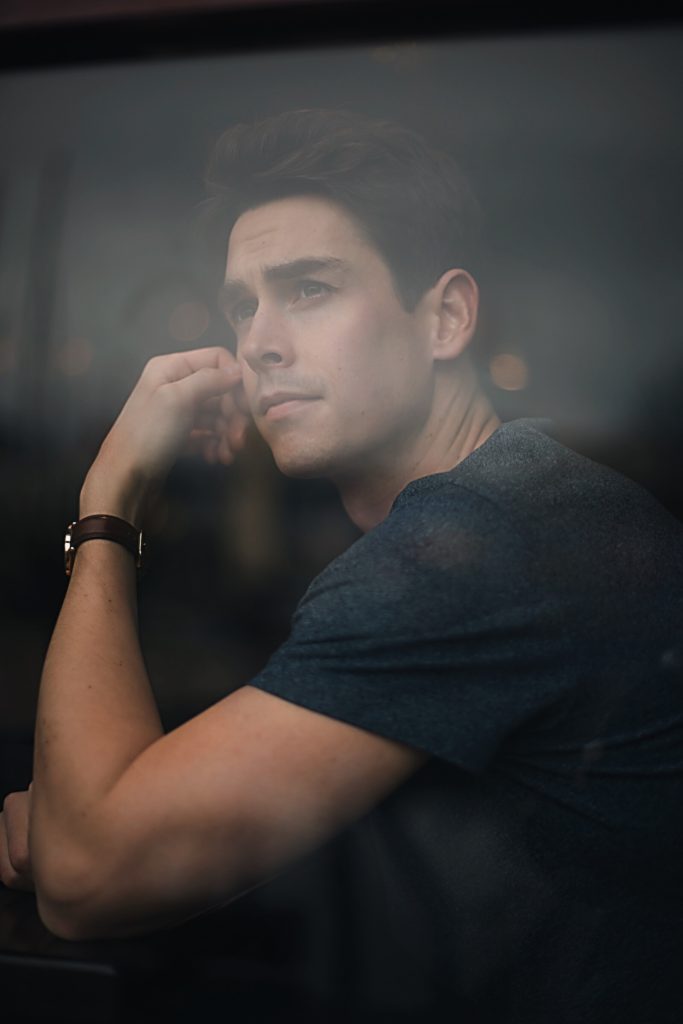
Had Madison Smith stayed the course he set for himself early in life, we would have needed a different list of questions for this interview. In an alternative universe, he’d be playing baseball for the Toronto Blue Jays after working his way up through the minor leagues – a dream he had since he was a kid – but after purposefully setting himself on a more creative career path in college, he’s now staring down the end of planet Earth as we know it.
Well, sort of.
As the star of the CBS series “Salvation,” the Canadian-born actor is not only wrestling with the fate of humanity, but also enjoying his biggest television role to date.
We recently sat down with Smith to discuss his recent roller coaster ride, discovering patience, and his new web series “NarcoLeap.”
TrunkSpace: This is shaping up to be a pretty exciting summer for you. Not only are you recurring on CBS’ “Salvation,” but you have a new web series from KGP Films that launched on July 15th called “NarcoLeap.” Do you feel like the road that you’ve traveled is leading its way to you seeing your dreams fulfilled? Is this the path you were meant to travel?
Smith: Oh wow. So far 2018 has been a fantastic year and it’s only halfway gone. It’s been a long, hard road so far, but I always stayed positive and hoped that things would someday look up. I definitely think my journey has still just begun, but like a roller coaster getting to the top of an apex, I’m picking up momentum!
TrunkSpace: You attended college on a baseball scholarship. Was a career in the MLB, working your way up through the minors, one that you actually saw yourself pursuing as well?
Smith: Absolutely. I had my early 20s all mapped out. I would play two years of college baseball at Okanagan College, which I found out would only count as one year at an NCAA school in the U.S. Then after I got my degree in business and had played five years of college ball, I would start to make my way through the minors with a hope to get to the MLB. I was a pretty decent baseball player so I thought I stood a chance playing baseball for my career. I bought new bats, a protective cup, some training nets and even a pitching machine, to make sure I had the best equipment for training. I used to train every night of the week and I honestly put my heart and soul into the game. After my first year of college ball though, something made me feel that I wasn’t on the right path. I loved watching the sport, and placing bets on Online Sportsbooks but playing baseball started to become a chore for me. Watching it on TV and in a stadium was exciting, but when I played myself, it just wasn’t the same. I discussed this with my parents, who have always been supportive of my life goals, and they were the ones who suggested that maybe I give acting a try. Immediately, I felt that was what I should be doing with my life and within six months I had uprooted my life to Vancouver, B.C. to pursue acting.
TrunkSpace: In the world of acting, is there an equivalent to the minors of baseball? Is there a place where you felt like you had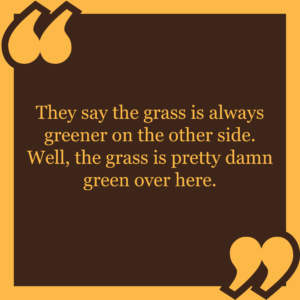 to pay your dues until you got the call to the big show?
to pay your dues until you got the call to the big show?
Smith: The first five to maybe 10 years in the acting business is all about paying your dues, very much like a minor league baseball player. Every audition you go to isn’t about booking that job, because there are tons of factors outside your control that go into that, but booking your next audition. Hopefully that casting director sees something in you and wants to bring you in again. And at the start, those auditions may be very small. I remember an early audition of mine was for “flower delivery guy.” I had one line and still didn’t book the role. But I got my next audition. Cut to six years later, I booked “Salvation” with that exact casting director. So patience and hard work is key.
TrunkSpace: As far as opportunities go, does it feel like “Salvation” is your biggest foot in the door yet? What did you take from the experience that you’ll carry with you through the rest of your career?
Smith: “Salvation” is definitely my biggest foot in the door and I’m extremely grateful for the opportunity. Through “Salvation” I’ve learned the joy and camaraderie that comes from being a part of a TV show. It’s my first experience with something like that and I always hoped it would be this great. They say the grass is always greener on the other side. Well, the grass is pretty damn green over here.
TrunkSpace: In the series you play Nate Ryland, a guy who is trying to get a handle on not only his own fate, but the rest of the planet’s as well. When you’re playing a character who has no future, at least not in his own point of view, is it even more important to play him in the moment?
Smith: Nate is a pretty interesting guy. He is fully aware of his circumstances but he is, for some reason, keeping a very level head about everything. He still lives life to the fullest knowing that there are things outside his control. He doesn’t let that get him down. So in terms of playing a character like that, it’s been a blast. I wish I was as positive as Nate is. (Laughter)
TrunkSpace: People tend to take more risks – find new versions of themselves – when they’re living like they’re dying. Does Nate have that quality? Do you think he has changed dramatically from who he was before discovering that an asteroid was headed for the planet?
Smith: I think Nate had a bit of a spiral downwards when he learned the news of the impending doom. But he looked for outside help to change his perspective. We may learn more about this in upcoming episodes…
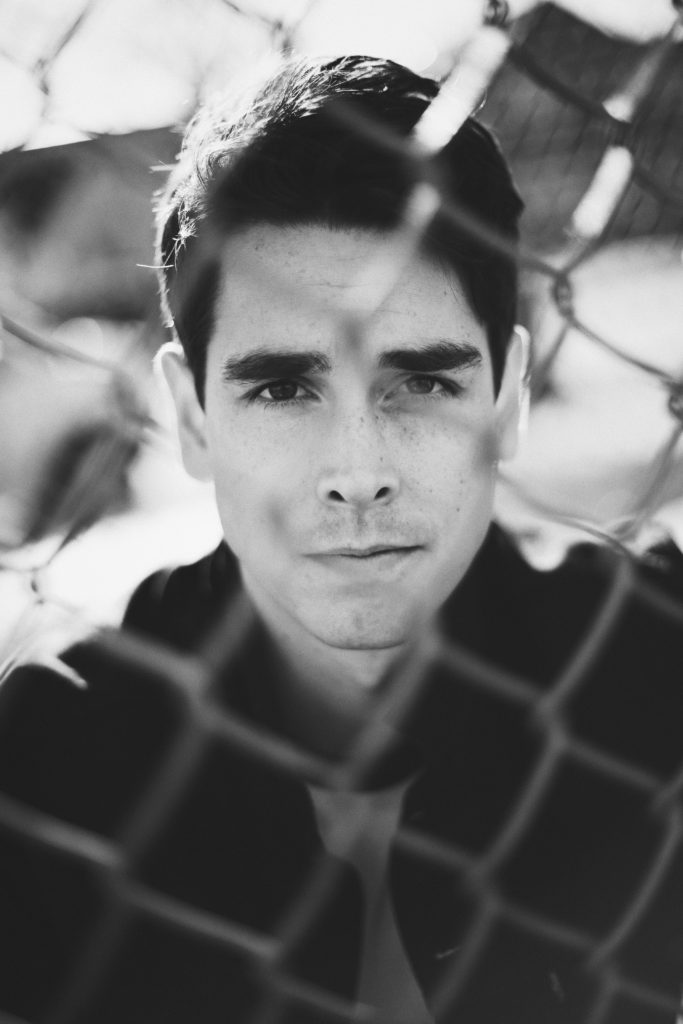
TrunkSpace: If you woke up tomorrow to discover an asteroid was headed for earth, do you think you’d approach your last days differently? Would the world see a different side of Madison Smith than you share with people now?
Smith: Actually I think the world might not see much of me because I’d grab my girlfriend and head up to my parents’ cabin. I’d enjoy my last bit of time in this world surrounded by the people I love in one of my favorite places. Oh, I’d also try and go see one last MLB game, but it would all depend on how much time I had.
TrunkSpace: “NarcoLeap” sounds really interesting. From a concept standpoint, there’s nothing else like it out there. How exciting is it right now to be an actor, not only due to how innovative the content is that’s being created, but because of the quality as well?
Smith: It’s such a great place to be in as an actor when the content is, for lack of a better word, cool! We are in a platinum age of television where shows are being made that pull you into a world almost like our own, but way more fantastical. To be a storyteller in one of those worlds is a dream come true.
TrunkSpace: Do you think you would have enjoyed being a professional actor as much as you do now if you were coming up in the 70’s and 80’s when everything in television was episodic and wasn’t necessarily character-driven? Storytelling is so different now, do you think it has altered the experience for actors?
Smith: No, I don’t think I would have. I think this day and age is the greatest to be an actor. The stories we get to tell now are so dynamic and have so many levels it makes reading a script or watching a show such a pleasure. Those in the ‘70s and ‘80s were pioneers for us now, but I’m much happier enjoying the fruits of their labor.
TrunkSpace: Finally, Madison, we know you ultimately chose a different path, but if you did continue to play baseball, what team would have been your dream team to play for? (Full disclosure, we’re Red Sox fans!)
Smith: Ah, part of the Red Sox Nation I see. Well, there’s a lot to love with a team like the Red Sox but my heart will always stay north of the boarder with the Toronto Blue Jays. In fact, I drive down to Seattle every year to watch them play the Mariners. So if I could choose a team to play for it would be my Jays!
“Salvation” airs Mondays on CBS.

Name: Erica Lies
TrunkSpace: Was comedy always in the cards? Were you a “funny” kid, even at an early age?
Lies: Definitely not. I was really quiet and all my friends were hilarious cut ups, which intimidated the hell out of me. But with my closest couple of friends (usually other girls) that I could relax around we would do dumb bits to entertain each other. My friend Helen and I had a long-running bit about becoming auteurs of “dork porn.” It wasn’t exactly porn for nerds that you’d find on a site like www.nu-bay.com; it was trying to do really dumb shit in a sexy way, like blowing your nose with a suggestive look on your face. Try it. It’s not possible to do both at the same time. And since I was little, I always did impressions of people to make my mom laugh. She used to tell me I was funny, but I thought she was just being nice. So, I was funny, but I had no confidence in it and I kept those cards very close to the chest.
TrunkSpace: When did you decide to pursue comedy as a career and did you make a plan for how you would attack things?
Lies: Ooof. I guess it slowly switched from being a Very Serious Shakespeare Actress who was only getting callbacks for comedy stuff, onward to doing comedy and later viewing myself as more of a writer than a performer. And I had no plan. But I knew people who worked in the industry, so even if it seemed distant, it didn’t seem completely impossible.
TrunkSpace: How long did it take for you to discover your voice as a writer?
Lies: TOO LONG.
That’s the short answer. The long answer is that I think my voice was always there. I just needed to learn to trust it and to learn the craft well enough to actually execute it. But looking back, I don’t think my overall voice has changed all that much. I just have more skill than I used to.
TrunkSpace: Is the approach you take now with your bits different from the approach you took when you first started out?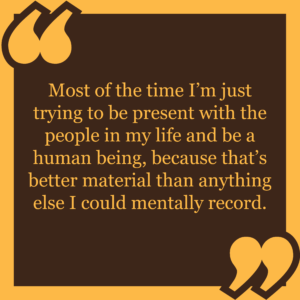
Lies: I can’t even really remember how I used to approach it, but I guess now I’m just way less precious with my stuff. I used to really stress over getting the perfect joke on the first try. But I heard all that advice about how you have to write tons and tons of jokes because most of them will be terrible, and that made me way more productive and write down more of the dumb idiocy I think of. So now instead of taking 20 minutes to write one perfect joke, I take 15 to write 10 mediocre ones and one that can be edited and tweaked to be great.
TrunkSpace: Is the neon “Open” sign in your brain always turned on, and by that we mean, are you always writing and on alert for new material?
Lies: Yes and no. Most of the time I’m just trying to be present with the people in my life and be a human being, because that’s better material than anything else I could mentally record. But I’m also still that quiet kid that just really loved to people watch and observe. And, I have to admit, when I encounter people who are ridiculously, egregiously irritating yet somehow totally unaware, it hits a certain light in my brain that just says, “KEEP GOING.” I’ll egg on the people that everyone else wants to avoid and it drives my friends insane. It’s like the improv maxim “make it worse,” only I truly make it worse by encouraging pretentious dudes to keep talking about how “Proust ruined [them] on short fiction.”
TrunkSpace: How much work goes into a skit before it’s ready to be tested out in front of an audience?
Lies: To give you the most frustrating of answers: it depends. I don’t ever like to take a first draft into the public realm, but once I’ve done one revision, I need a crowd to know if something’s working or not. On the other hand, putting a sketch up without rehearsal is a guaranteed way to fall flat on your face in front of an audience. So. It depends!
TrunkSpace: Are you more comfortable in a pre-written piece or in the freedom of flying by the seat of your comedic pants with improv?
Lies: I can’t really say either way. But looking at it from worst-case-scenario territory, I’d rather bomb an improv show than something I spent hours and hours obsessing over and crafting. If an improv scene isn’t working, you can just edit it and start a new one. But with a sketch or script, you’re stuck with it ’til the bitter end of the show.
TrunkSpace: Does a receptive and willing audience fuel your fire of funny and help to put you on your game for the rest of an improv performance?
Lies: I guess sometimes, but most of the time no. An audience will at least let you know instantly when something is working, which is helpful feedback, but most of the time, I tune them out. Some part of my brain still hears the laughs as technical information, like, “ah, this is the funny part of this scene. Keep playing this dynamic/game/character trait.” But the vast majority of the time paying attention to laughs just puts me in a nervous mental headspace where everything I do utterly tanks. So, I tune them out. It’s easier for the audience to love you if you don’t give a shit about them loving you.
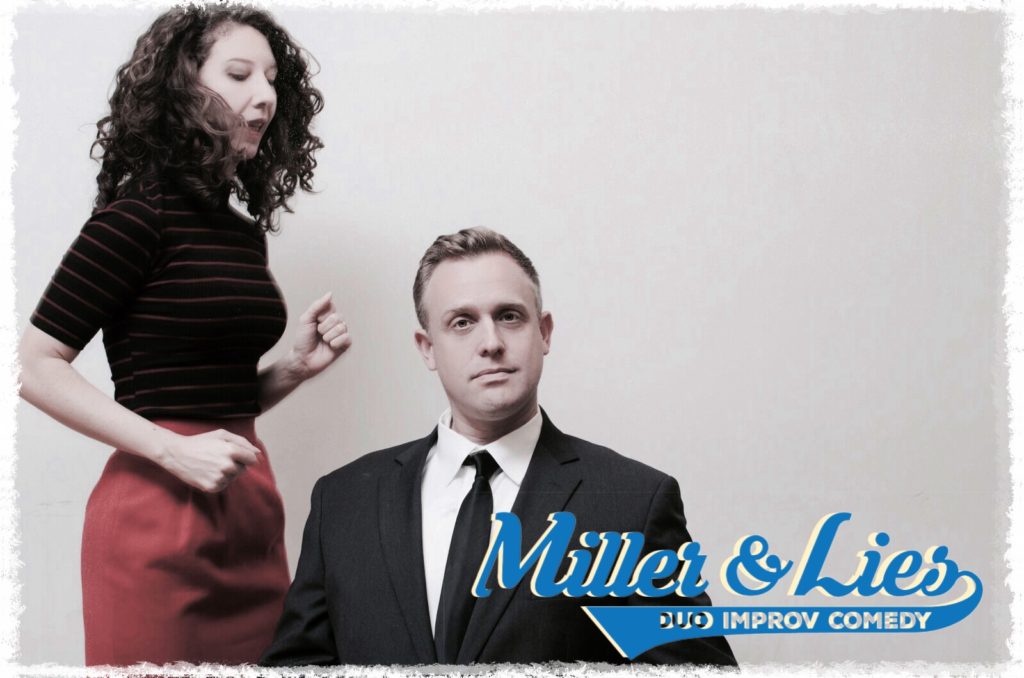
TrunkSpace: Comedy can be so subjective, but is it even more so in a written piece? How do you establish tone and delivery in a piece of work where the reader is establishing the voice?
Lies: I hear it in my head a certain way. I don’t know that I can really describe it beyond that. Making the joke clear early on is important — especially in a humor piece. But aside from that, I just focus on heightening. And the rhythm is really important. One extra syllable can throw it off and kill a joke.
TrunkSpace: What is your most memorable performance experience (good or bad!) that will stick with you for the rest of your career and why?
Lies: Most of them have blended together at this point but I can remember snippets here and there where it felt like flying. Probably my worst personal moment was when I was performing at a new theater with my old sketch team and didn’t check out the backstage area first. My friend and I had written this really *stupid* rap duo and I was getting hyped as I was entering and then BAM, I slammed my face — full force — into a concrete wall. There were no lights in the back and I hadn’t seen that a pillar jutted out. So what I thought was a clear path… was not. My friend checked on me and I was like, “I’m fine. Am I bleeding? My face is wet.” Then I tilted my head down and blood just ran down my face. One of my teammates had to stop the show while I got first aid and he had to repeatedly explain that it wasn’t a bit. And to top it all off, I was in a costume best described as “fancy jugglette.”
TrunkSpace: How do you handle hecklers? What approach do you take?
Lies: I don’t. Or at least, in improv you don’t really get them. But generally when people talk during a show and it’s more than just call-and-response commentary, when it’s disruptive, I mostly just address it directly and make it part of the scene. Most people are so freaked out that you addressed them that it shuts them up, and as long as you’re funny while you do it, it won’t alienate the rest of the audience.
TrunkSpace: What are your thoughts on the comedy landscape in 2018? Are you optimistic for the future of the medium?
Lies: I don’t really think about it, but yeah, I know there’s a lot of people out there that complain about having to be PC now, but I see it as improving comedy. It forces everyone to make smarter jokes and actually point the critique at the powerful instead of the powerless.
TrunkSpace: Finally, who do YOU find funny?
Lies: Richard Ayoade, always. Phoebe Waller-Bridge. All the characters on “Brooklyn Nine-Nine” because they’re so crystal clear yet always still surprising. The show “Great News,” but sadly it just got canceled. And I’ll always have a soft spot for lovable loser characters.
Featured image with Katie Stone in “Menenists.” Photo by: Christopher Hwisu Kim.
Below you can view an episode of the web series “Uncomfortable” directed by Lies.


